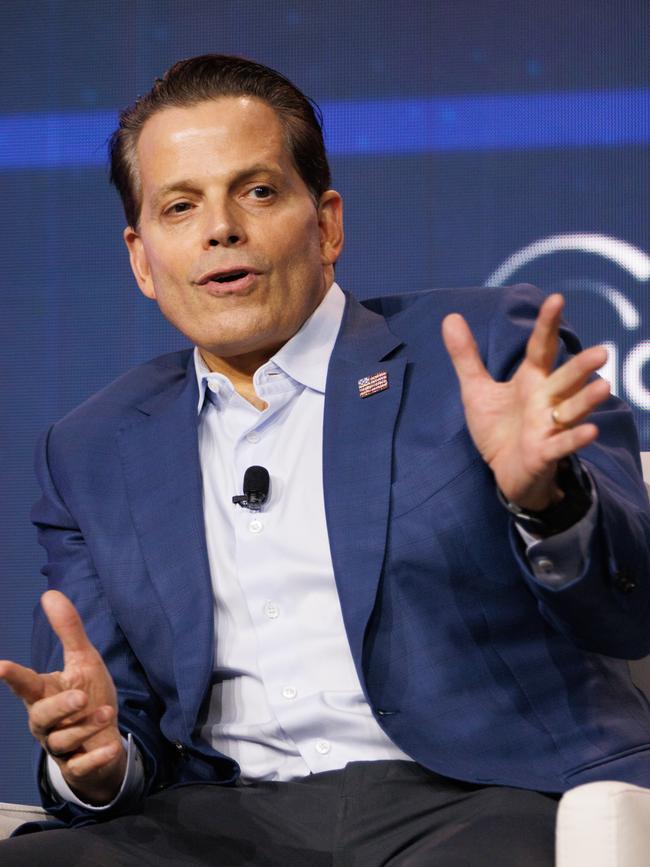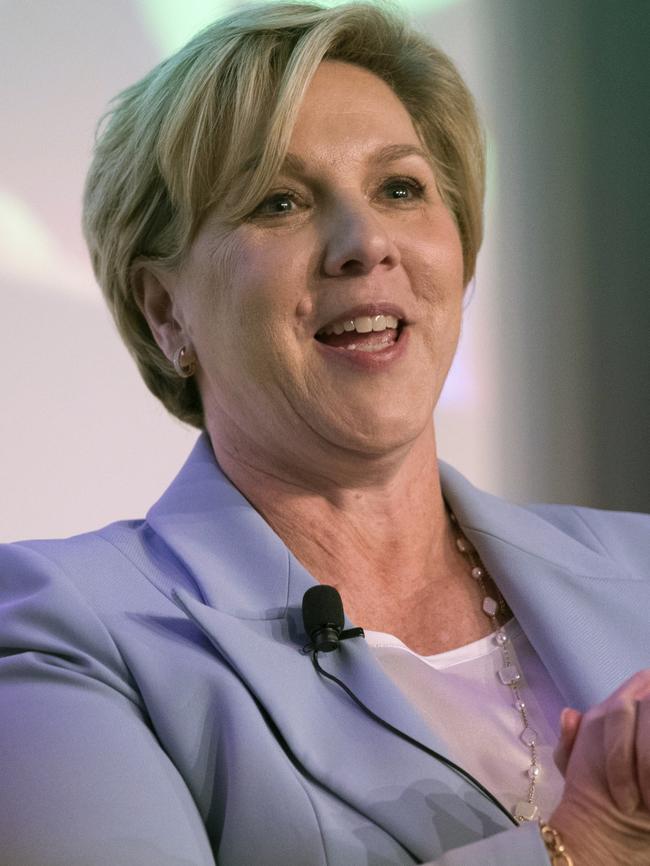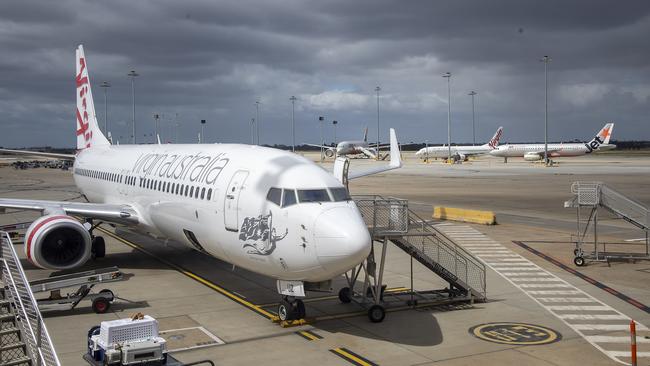Unless there’s a late intervention from someone like podcaster Joe Rogan or UFC boss Dana White to broker a truce, there’s no telling how this will end; although the chances are it will be worse for multibillionaire Musk than Trump.
In this battle royale, Trump has all the power and Musk has the money.
When Musk hit out at Trump’s massive tax cuts and spending measures, the US President struck back, claiming the multibillionaire is suffering “Trump derangement syndrome”. Musk has suggested Trump should be impeached and has linked the President to the paedophile Jeffrey Epstein’s files.

But in a war of attrition, Musk faces the billionaires curse: his massive wealth is not liquid. It’s tied up with the fortunes of his EV maker, Tesla, and his privately held rocket and satellite operator SpaceX. If they stumble, so does Musk.
His social media platform X might have reach, but it has plenty of debt that’s being bounced around banks.
There’s already threats from Trump about SpaceX losing lucrative contracts. Just this week Musk said SpaceX was expected to generate $15.5bn in revenue this year, giving a rare insight into the size of the closely held company.
The Wall Street Journal has previously estimated it could be worth $US350bn, but much of that value is filled with empty space. It relies on Musk maintaining good relations with Washington.
So far Tesla has taken the biggest public hit. It suffered a 14 per cent share slide during Thursday’s session over fear the escalating war of words could lead to Trump pushing tougher road-use fees and charges on EVs. He could choose to exempt Chinese or European EVs from crippling reciprocal tariffs. The sky’s the limit.
This is where the Tesla board, headed by Australian former Telstra executive Robyn Denholm, needs to rein its chief executive in.
Without me, Trump would have lost the election, Dems would control the House and the Republicans would be 51-49 in the Senate.
— Elon Musk (@elonmusk) June 5, 2025
Tesla’s board has stayed silent for far too long, letting Musk do what he wants and run amok, despite the intense reputational damage to the EV maker. Musk has put most of Europe off-side, and his public backing of Trump has added to Tesla’s sales woes in China. Sales are also crashing in Canada and meanwhile the much-hyped CyberTruck model has flopped in the US.
It could be argued that at times the Tesla board has actively encouraged Musk’s antics by lending support to grant him the world’s most valuable pay package – worth about $US45bn over a decade – despite significant pushback from big investors.
Denholm has done well out of Musk. She has sold more than $US138m ($212m) worth of Tesla shares so far this year and is sitting on share options valued at $US162m, according to company filings.
However, there were signs of a shift from April with suggestions investors forced the carmaker’s board to take a hard line on Musk by telling him to get out of the White House and put more focus on Tesla. Although it was also a two-way street: Like a house guest who has overstayed their welcome, Trump also wanted Musk to leave.

When Musk told investors on April 23 he planned to finish up at the “Department of Government Efficiency” (DOGE) and spend more time at Tesla, the carmaker’s shares snapped a losing steak which had set in from the start of this year. From that point until this month they were up as much as 50 per cent.
Musk now holds just 12.8 per cent of the $US1 trillion Tesla, so there are a lot of non-Musk shareholders who could lose from the feud (although these same investors have been happy to ride the Musk wave).
Last week, a group of US pension funds started a campaign to put more heat on the Tesla board to toughen up its governance. This included getting a commitment from Musk to work at least 40 hours a week at Tesla.
For too long, the Tesla board has given Musk freedom to do what he wants. Indeed, it’s actively supported his antics with a push to give him what he wants, including the monster pay package.

The Australian last month spoke with former Trump adviser and hedge fund boss Anthony Scaramucci about the Trump and Musk relationship. Much of the bromance had been about money, he insists. “Elon’s loaded and Trump loves money.”
However, he had been warning for some time that the relationship was doomed to implode. “I thought they would have flamed out earlier,” he told The Australian.
“It’s important for Trump and Elon not to have a ‘Pyrrhic disaster’ at the end. Trump wants to get money from him and Elon doesn’t want to piss off Trump because of all of his ties to all these government contracts.”
Before this week’s clash, it was all smiles for the cameras, but tensions were already there. “They grate on each other,” Scaramucci says. “Elon has told people that the tariffs were totally ridiculous. And Trump has told people: ‘When the hell is he leaving?”
The era of Musk’s influence in Washington is over.
Taking off
Virgin Australia will have paid almost $500m in dividends to owner Bain Capital and other backers, according to the airline’s prospectus released on Friday – but it may be a little while before new shareholders see theirs.
The documents give the first full insight into the financial health of the born-again airline since it went private following its collapse in 2020. The biggest change is the stunning rebound of profit margins from the pre-Covid airline.
Virgin pulled the trigger on the $685m fund raising earlier this week, and its shares are to be sold at $2.90 each. On listing, Virgin Australia will have a market capitalisation $2.3bn.

Virgin is forecast to post a record underlying pre-tax profit of $659m this financial year on the back of more than $5.8bn in revenue, the documents show.
The earnings would be up 27 per cent on the same time a year ago. In the past three years, Virgin has generated a combined $1.6bn in underlying pre-tax profit. Its airlines business does the heavy lifting, making up 87 per cent of earnings, and the balance comes from the Velocity loyalty business.
Under Bain, Virgin has undergone a major reset and it now focuses on just the most profitable parts of the aviation market – domestic, short-haul international and loyalty. Virgin’s underlining aviation margin is forecast to be 16.6 per cent, the documents show. Last year it returned 13.6 per cent compared with bigger rival Qantas’ domestic margin of 14.7 per cent. This rebound is the real story; before the Covid-19 pandemic Virgin Australia was barely generating margins of about 3 per cent.
Virgin’s returns on loyalty at 28.4 per cent outpace the Qantas program, although Qantas’ Frequent Flyer scheme is bigger and more complex with 16 million members, compared with Virgin’s 13.3 million.
While Virgin Australia is now spitting out about $450m a year in free cashflow, its balance sheet is still fragile and weighted down by more than $1.3bn of net debt, including leases.
Even after the sharemarket listing, Virgin will have net negative equity of $840m. This gives it extremely limited options in the event of any future financial shocks.
It also means its ability to pay dividends may be constrained until it builds up a buffer of retained earnings.
Remember, Qantas only resumed paying dividends this year for the first time since Covid-19. Virgin is scheduled to make its ASX return on June 26.




As two of the biggest egos on the planet go to war in real time, it’s probably wise for the rest of us to get out of the way and let Donald Trump and Elon Musk slug it out.